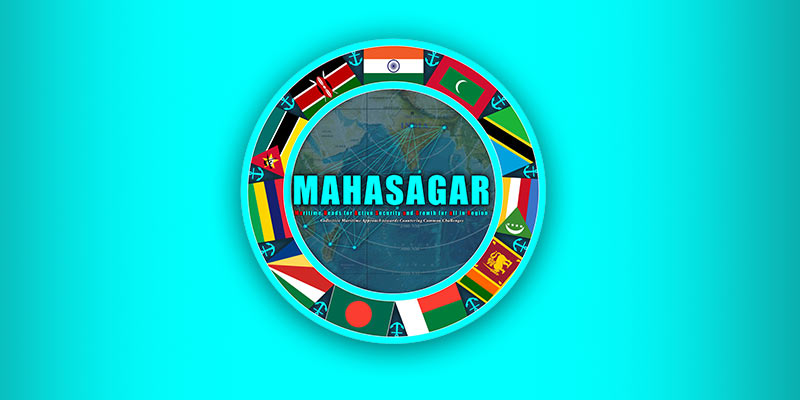- India
- Dec 01
Indian Navy hosts MAHASAGAR
• The Indian Navy hosted the maiden edition of MAHASAGAR on November 29.
• It is a high level virtual interaction of Maritime Heads for Active Security And Growth for All in the Region (MAHASAGAR).
• Chief of the Naval Staff Admiral R. Hari Kumar interacted with heads of navies/maritime agencies and senior leadership from Indian Ocean Region littoral states.
• The heads of navies from Bangladesh, Comoros, Kenya, Madagascar, Maldives, Mauritius, Mozambique, Seychelles, Sri Lanka and Tanzania participated in the interaction.
• The interaction’s theme was ‘Collective Maritime Approach Towards Countering Common Challenges’, which highlights the present and necessary imperative for harmonising and collaborating capacities and capabilities in the Indian Ocean Region (IOR), which is in consonance with the government of India’s vision of ‘Security and Growth for All in the Region’ (SAGAR).
What is SAGAR policy?
• Prime Minister Narendra Modi introduced the concept of SAGAR — ‘Security and Growth for All in the Region’ during his visit to Mauritius in March 2015.
• It is a high-level articulation of India’s vision for the Indian Ocean. SAGAR has distinct but inter-related elements and underscores India’s engagement in the Indian Ocean.
• The principles enshrined in SAGAR provide a coherent framework to address some of the challenges related to economic revival, connectivity, security, culture and identity.
• During his address in Maldives Parliament in June 2019, Modi said SAGAR is also a blueprint for cooperation in the Indo-Pacific region.
• Under the broad vision of SAGAR, relations have been augmented with partners in the region in defence and security, development partnership, training and capacity building.
Key features of SAGAR:
i) Enhancing capacities to safeguard land and maritime territories and interests.
ii) Deepening economic and security cooperation in the littoral.
iii) Promoting collective action to deal with natural disasters and maritime threats like piracy, terrorism and emergent non-state actors.
iv) Working towards sustainable regional development through enhanced collaboration.
v) Engaging with countries beyond shores with the aim of building greater trust and promoting respect for maritime rules, norms and peaceful resolution of disputes.
vi) The ‘Blue Economy’ has emerged as a promising new pillar of prosperity in the region, with immense economic and employment potential. India is engaging with its neighbours in Blue Economy initiatives, particularly in the areas of marine bio-technology, exploration and sustainable exploitation of ocean mineral resources, sustainable fishing practices, and harnessing of ocean energy.
Manorama Yearbook app is now available on Google Play Store and iOS App Store

